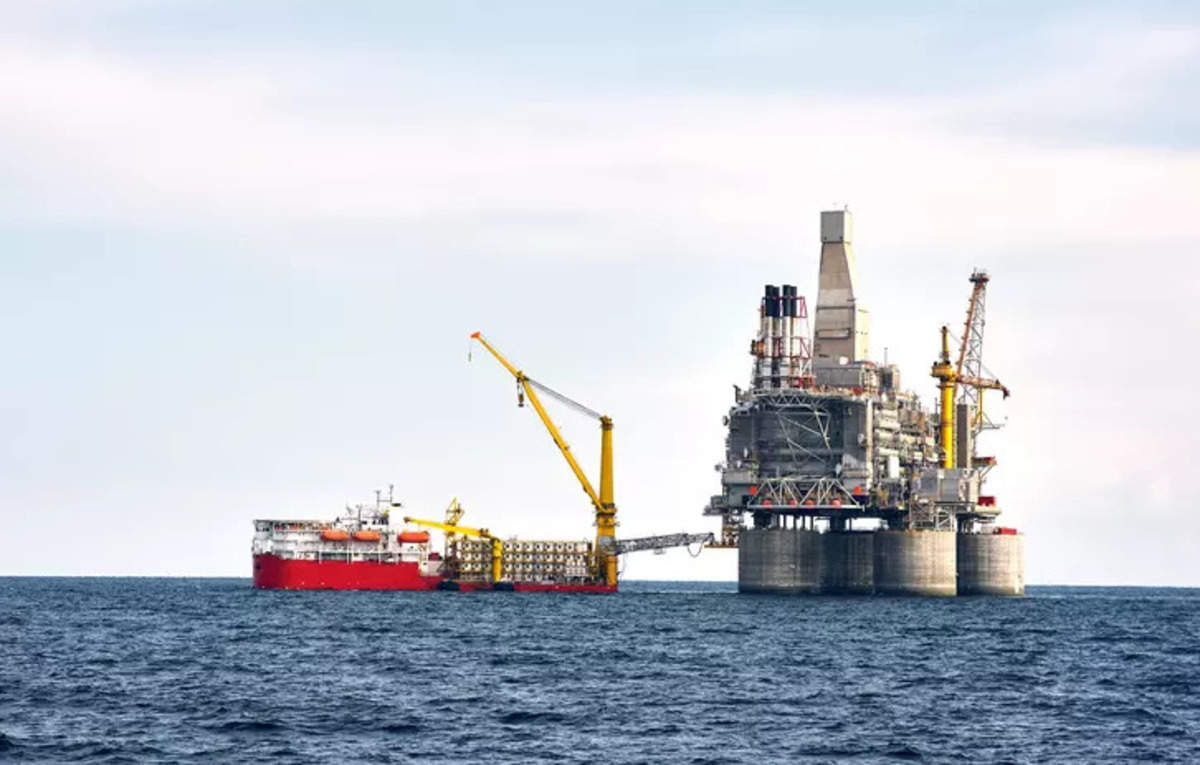The oil and gas sector in Colombia plans to increase the number of new licenses granted in the field of exploration, in an effort by the country’s government to enhance its reserves of the two vital commodities.
The Latin country, which is currently experiencing a dire economic situation, represented by skyrocketing inflation rates and a sharp drop in the local peso currency, is counting on reviving the oil and gas industries to boost its eroding national income.
In this context, the government is studying the need to conclude more contracts for oil and gas exploration in Colombia, following the issuance of the results of a report that showed the country’s reserves declining from the two main sectors, according to the “Bloomberg” network, quoting Colombian Trade Minister German Umana.
Umana said the Colombian government wants to lead the shift away from fossil fuel sources while limiting negative impacts on the economy, in telephone remarks to Bloomberg, followed by the specialized energy platform.
“We will definitely take measures to ensure environmental sustainability, and – also – economic sustainability,” said Umana – who was speaking from Washington, DC, after meeting with US officials to discuss the trend towards the growth of global protectionist policies.
Gustavo Petro won the presidency in Colombia last year (2022), pledging – at the time – to phase out oil and gas.
Suspension of licenses
So far, Petro’s government has refused to issue any oil exploration licenses, although some ministers in his government have hinted that this policy could be amended soon.
Colombia needs to take into account the importance of oil and gas exploration for the balance of payments and financial calculations, according to Umana.
Oil and coal accounted for nearly half of Colombia’s exports in 2022.
The Colombian government needs to take into account the performance of other sectors, such as tourism, too, in order to gauge the pace at which Caracas is completing its energy transition.
period feud
Trade between Colombia and Venezuela is expected to rise to a total value of $1.2 billion during the current year (2023), from nearly $700 million last year (2022), according to the Colombian minister’s statements.
Business is growing at a rapid pace between Caracas and Bogota, after Pietro established strong diplomatic relations with the second once he came to power in 2022, ending a prolonged period of hostility between the two neighboring countries.
Bilateral trade
Venezuela was once the largest export center for Colombian goods, with Caracas receiving about $6 billion worth of products from Bogota in 2008.
However, bilateral trade declined with the deterioration of relations between the two countries. In this regard, Umana said that trade could gradually rise to about $4.2 billion by 2026.
“The biggest obstacle to export growth is Venezuela’s demand,” he said.
Colombia could boost its exports of medicines, agriculture, automobiles, metallurgical and steel industries to Venezuela, which is vital to the recovery of the oil sector in the latter.
import tariff
Colombia needs to support certain sectors against the anti-competitive practices of developed countries – such as production subsidies – that make it difficult for Colombian products to compete.
While Umana did not specify which sectors need protection, Petro has long spoken of measures to protect Colombia’s agriculture.
And in December (2022), Colombia imposed a 40% tariff on clothing imports in order to protect the local textile industry.
Colombia’s oil and gas reserves
Colombia’s oil reserves were 2.074 billion barrels as of December 31 (2022), an increase of 35 million barrels, or 1% compared to the previous year (2021).
Meanwhile, Colombian natural gas reserves declined slightly, to 2.82 trillion cubic feet, according to the latest data issued by the Colombian Ministry of Mines and Trade, viewed by the specialized energy platform.
Colombian officials have previously said that oil and gas reserve reports will determine whether the country needs to resume auction rounds for oil and gas exploration rights.

Leave a Reply